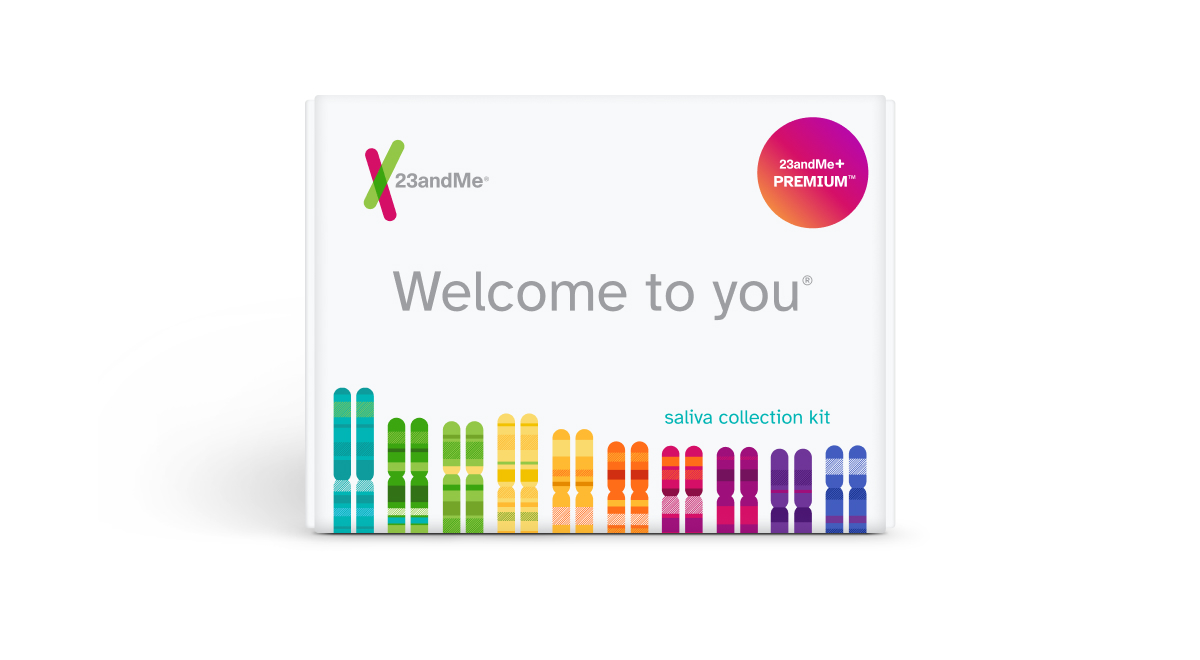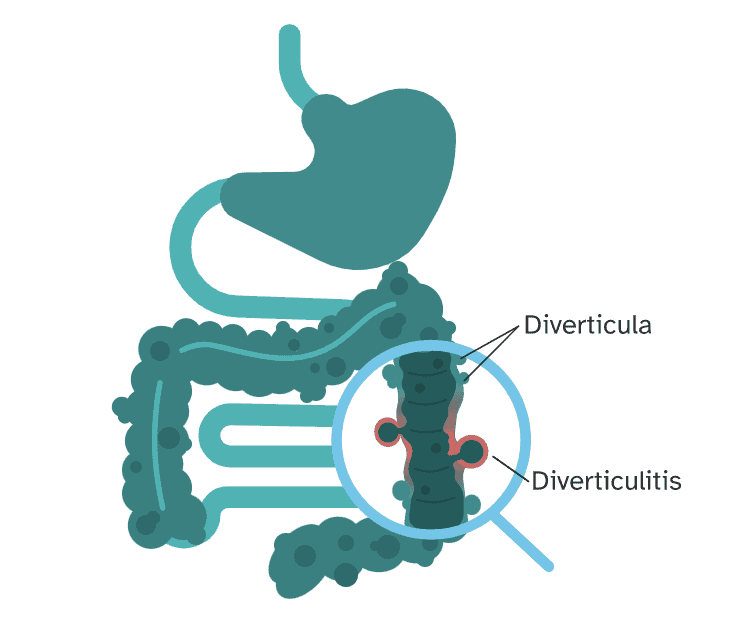Explore Diverticulitis and what your DNA can tell you
What is diverticulitis?
Especially as people age, weak spots in the intestinal tract give way to form small pouches or sacs. These pouches are called “diverticula.” (One pouch is called a “diverticulum.”) Scientists don’t know exactly why these pouches form, but it is likely due to a combination of factors including weakening of the intestinal wall. Most diverticula form in the large intestine (colon). Having diverticula is a condition called “diverticulosis,” which is very common with age and doesn’t usually cause problems. If diverticula become inflamed or infected, it is called “diverticulitis,” which can cause symptoms and complications.

Find out how genetic testing for Diverticulitis works.
How can diverticulitis impact your health?
People with diverticulitis may experience abdominal pain, nausea, vomiting, fever, constipation, or diarrhea. While most cases are easily treatable, some may also lead to complications such as intestinal abscesses (infected areas where pus collects), perforations, or blockages. Serious cases of diverticulitis, while not common, usually require treatment in a hospital. If you have concerns about diverticulitis, talk to a healthcare professional about what next steps, like colonoscopy screening or lifestyle modifications, are right for you.

Other factors that may cause an increased likelihood of diverticulitis
It is estimated that more than 50% of U.S. adults over age 60 have diverticula, but fewer than 5% of them develop diverticulitis. Besides genetics and lifestyle, some factors that can increase a person’s chances of developing diverticulitis include:
- Age (this condition is more common as people get older)
- Family history or personal history of diverticulitis
- Sex (below the age of 50, this condition is more common in males; above the age of 50, it is more common in females)
- Currently taking certain medications (such as steroids and nonsteroidal anti-inflammatory drugs, also called NSAIDs)

Find out if your genetics might increase your likelihood of developing diverticulitis
Curious whether you have an increased likelihood of developing diverticulitis based on your genetics? 23andMe takes into account more than 5,000 genetic markers to estimate the likelihood of developing diverticulitis. Find out more with the Diverticulitis report (Powered by 23andMe Research), part of the 23andMe+ Premium membership. 23andMe+ Premium includes our Health + Ancestry Service plus new premium reports and features throughout the year.

23andMe+ Premium
Please note:
- The report does not diagnose diverticulitis and should not be used to make medical decisions.
- The report was developed by 23andMe scientists using data and insights gathered from thousands of customers who chose to participate in our research. Reports based on 23andMe research provide an estimate of your likelihood of developing or having a condition based on your genetics and other factors. This report does not account for lifestyle or family history.
- The report does not account for every possible genetic variant that could affect your likelihood of developing diverticulitis and may not necessarily reflect the likelihood of developing diverticula.
References:
Tursi A et al. (2020). “Colonic diverticular disease.” Nat Rev Dis Primers. 6(1):20.
